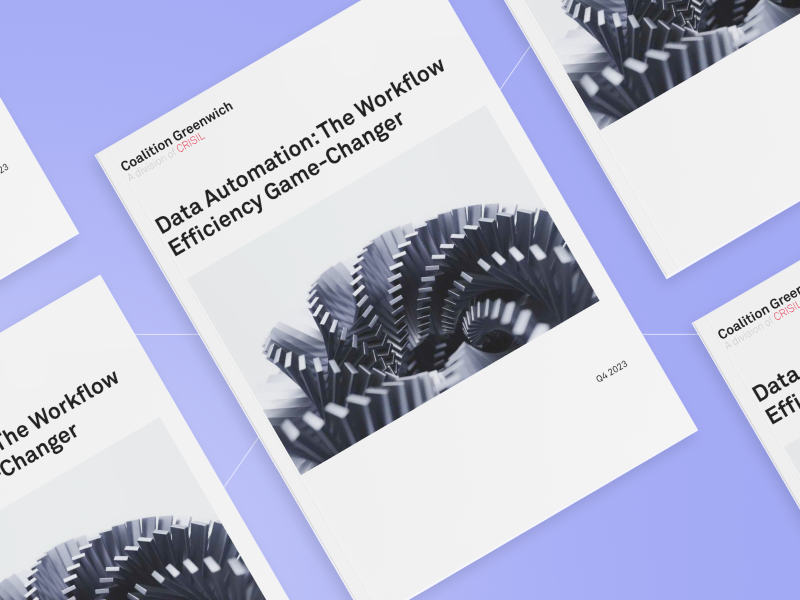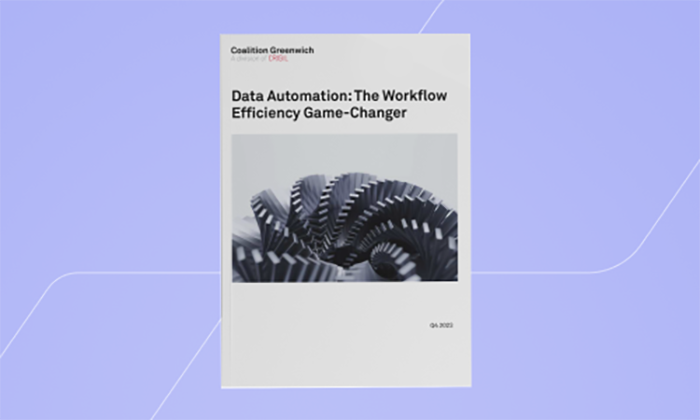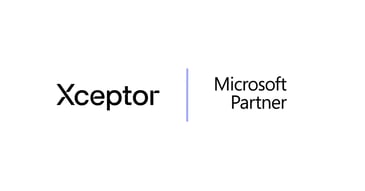There is a compelling and urgent need to improve the use of technology and automation for capital markets, particularly ahead of reduced settlement times for T+1.
A Coalition Greenwich research report – "Data Automation: The Workflow Efficiency Game-Changer" emphasizes the crucial need for technological advancements and automation in capital markets. Over 60 C-suite and senior leaders from capital markets firms in North America, the UK and Europe participated in the study, highlighting the complexities of implementing process automation due to the vast volume of data that needs processing.
"Improving efficiency and accuracy across the trade lifecycle is essential for firms to reduce costs, lower the need for extensive resources and minimize risks,"
says Audrey Blater, Senior Analyst for Coalition Greenwich Market Structure & Technology and author of the report.
"Many financial institutions are attempting to solve this with a combination of proprietary systems, internal staff, third party providers and manual processes, with mixed results. To accommodate market changes, evolving regulation and the ever-expanding data needs, robust, scalable technology for data automation and processing is absolutely crucial."
The report underscores the challenges faced by financial institutions in finding effective solutions. While 60% of the market uses at least one third-party system, a mixed approach of third-party and proprietary systems leads to significant inefficiencies, requiring additional manpower to reconcile.
Key findings include:
- The percentage of offline reconciliation is highest among users of proprietary solutions. Users of third-party solutions, or a combination of third-party and proprietary see lower levels of offline reconciliation. Proprietary solutions also see high rates of manual data cleansing.
- Third-party solutions are viewed as highly capable of standardizing data, with users benefiting from workflow efficiencies that arise. Almost 80% of firms using a third-party data cleansing solution rely on these services for all of their data transformation.
- However, more than half of study respondents do not outsource data cleansing, choosing to use proprietary systems and internal staff which can be labor intensive, particularly for data linked to nascent products such as digital assets.
- About 36% of respondents are using manual processes to cleanse 10% or less of their data.
- Nearly a third still use manual processes for data cleansing over 50% of the time.
As the 2024 T+1 implementation deadline approaches, concerns are rising about the readiness of market participants, especially smaller institutions. The increasing complexity of data, legacy technology, and multiple systems could potentially lead to a scramble to meet the deadline.
Josh Monroe, Chief Revenue Officer at Xceptor, highlights the urgency of the situation:
"The industry's struggle to manage and process the ever-expanding volumes of complex and unstructured data is concerning. This limits firms' ability to automate and streamline their processes efficiently, particularly using in-house solutions. The need of the hour is to do more with less."
The report
Data automation: the workflow efficiency game-changer
New Coalition Greenwich report highlights the urgent need for tech and automation in capital markets.




